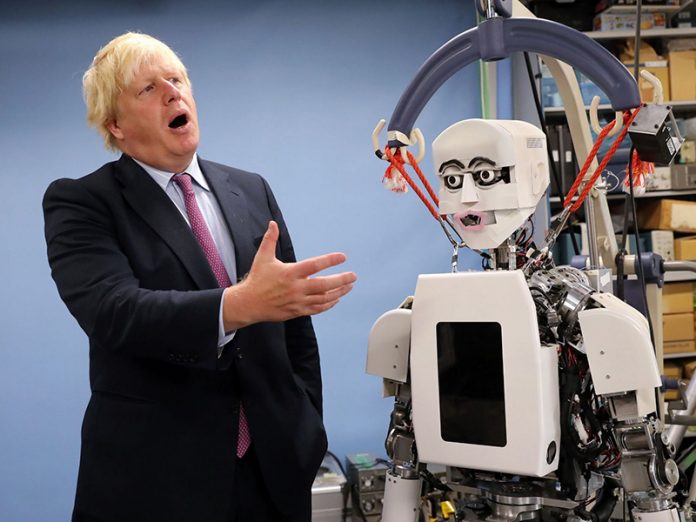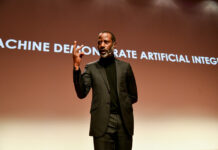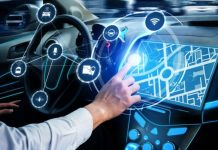Learning another language isn’t an easy thing to do (and I’m very aware how lucky I am being a native English speaker). Time and environment are key. I studied French for several years, but never lived in France, so remained at a very rudimentary level. I never studied Spanish, but have lived in the country since 2003 – and so have a fluent (yet far from native) grasp of the language.
Yet I still remember those first months, painstakingly constructing the most basic of sentences to send an email, and then translating word-by-word, the reply. Online aids did exist, but rapid use of a paper dictionary would often be just as effective. And you would never – I repeat never – use an automatic translator. The resulting gibberish clearly showing that language is never a pure word for word translation but contains significant nuance and approximations. 10 years and more after my move to Spain, still not an option. Yet in the past 12-18 months a funny thing has happened. Google translate is a phenomenal tool. It’s still not perfect, but when combined with informed human input, it improves the productivity in my bilingual company tremendously. But machine translation is already causing quite a stir in the translation industry and people are talking about whether or not machine translation will completely replace human translators.
So, while the frequent commentary on Artificial Intelligence may conjure up images of sophisticated robots, even Arnold Schwarzenegger-type figures for those of a certain age, the real power of AI may be in these more subtle, yet still transformative areas. Think on your own experience receiving recommendations for shopping on Amazon, or watching a show on Netflix – the level of accuracy for something you may not have yet considered on a conscious level can be unnerving.
This clearly shows the phenomenal advances that AI has made in the past few years with recommender systems. Aleksander Matic, Head of Research for Health at Alpha, Telefónica’s “moonshot factory” defines AI as having a “superpower in recognizing patterns.” He says that data is the fuel for this superpower, and that all of the enthusiasm today comes from the combination of AI with the unprecedented datasets we have at our disposal.
So how might we take this to the future world of work? And will increasing AI sophistication improve our wellbeing? Mischa Zielke, co-founder at the Boston based AI start-up enaible, is looking to answer these questions. Believing that “everyone deserves to be led by a great leader”, enaible is an “AI powered leadership engine” which helps drive productivity over time. It puts the human in the center and uses AI for quantification and pattern recognition (the upstream) as well as individualized leadership recommendations (the downstream). This human centricity is the core mantra and anchor point for all that enaible is doing.
Zielke’s vision is a world where productivity as well as wellbeing is actively managed by informed and empowered leaders and the employees they serve. The underlying technology maximizes productivity so that every worker has an opportunity to succeed. Allowing both an individual view for the leader, and aggregate view of the teams they manage, it collects a whole range of data already existing in the organization to give a clearer picture of what’s going on. This increased transparency then allows the leader to make the best decisions to improve performance and wellbeing over time (at both the individual as well as the collective level). Part dashboard and part digital coach he’s also aware of the importance of educating enaible users to mitigate the risks of subjective perception, or even delegating human leadership all together.
One question might be whether we readily receive nudges and recommendations from technology for our productivity and wellbeing, especially when technology (as we considered in last months episode) can be the source of low productivity and compromised wellbeing in the first place. Alpha’s Matic takes an optimistic view, believing in the fulfillment of the original vision from the field of Ubiquitous Computing, that technology will create calm and fade into the background as an “invisible servant.” With his own focus on health as Alpha move towards a Minimum Viable Product to address stress and anxiety before the end of 2019, he simplifies the process to the basic questions: Who are you? What are you doing? How do you feel? after which AI provides an intervention or nudge to “feel better” before repeating the process and learning how to personalize the nudge.
A simple looking process but with many open questions on the right interventions and channels. The key for a superpower whose fuel is data, is finding out which specific data points, out of potentially billions of possible data-sets, is the right ‘fuel.’ The output will be a clearer line of sight on the patterns which make us tick. For Matic and Alpha, this will help address stress and anxiety. For Zielke and enaible, to improve productivity and wellbeing. And in the case of Google translate it enables mapping of complex patterns between different languages. Google translate also shows that, however accurate on a technical language level, it still doesn’t fully identify sarcasm, irony, and humour – certain traits that make us uniquely human – and so the optimum power of AI is in the technology with an informed, educated human user.
The machines, therefore, really will make us more human – as long as we, as humans, use them in the right way, and for the common good. Yet therein lies the challenge. The phenomenal effort in developing such advanced technology in the first place may actually turn out to be the easier task. Zielke, like Matic, is an optimist. He detects greater self-awareness in leaders worldwide, and higher levels of spirituality. Perhaps the greatest things that the machines will do for us is give us the space and insights to fully realize our human potential.
About the Author
 Dr. Steven MacGregor is the CEO of The Leadership Academy of Barcelona [LAB] an executive education provider and management consultancy with clients including McKinsey, Telefónica and Uber. A Visiting Fellow at the Glasgow School of Art he teaches on open and custom programs at IMD, IE, IESE and CEIBS. Formerly a visiting researcher at Stanford and Carnegie-Mellon he is the author of Chief Wellbeing Officer (LID 2018)and Sustaining Executive Performance (Pearson 2015). His twitter handle is @spmacg.
Dr. Steven MacGregor is the CEO of The Leadership Academy of Barcelona [LAB] an executive education provider and management consultancy with clients including McKinsey, Telefónica and Uber. A Visiting Fellow at the Glasgow School of Art he teaches on open and custom programs at IMD, IE, IESE and CEIBS. Formerly a visiting researcher at Stanford and Carnegie-Mellon he is the author of Chief Wellbeing Officer (LID 2018)and Sustaining Executive Performance (Pearson 2015). His twitter handle is @spmacg.



































